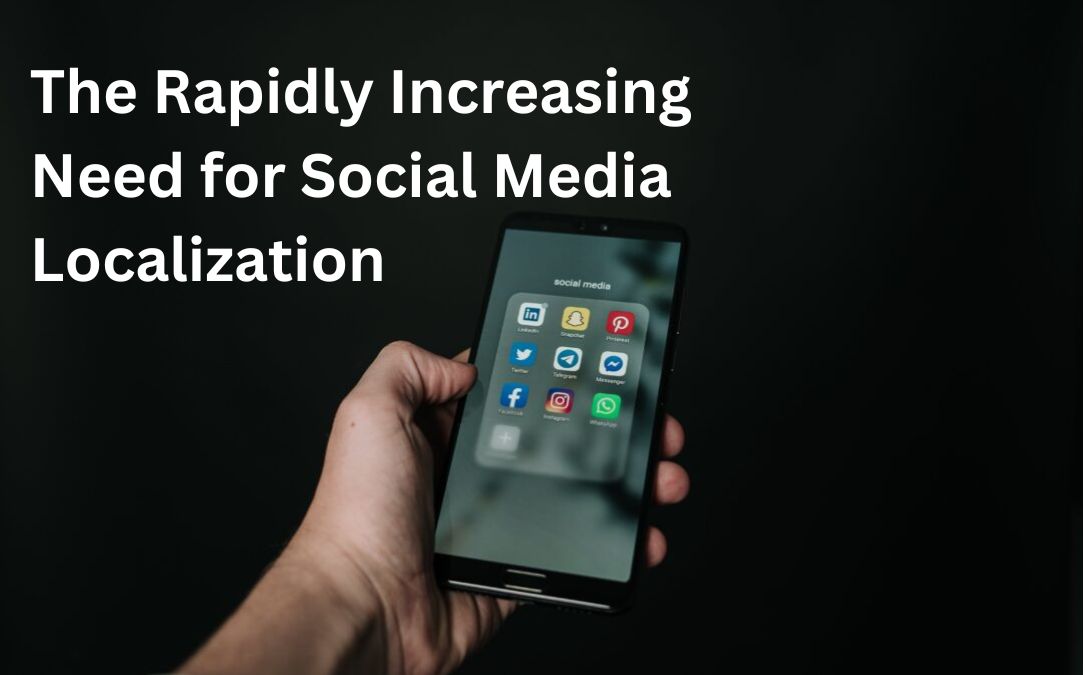In an era where the world is more interconnected than ever, social media has become an integral part of our daily lives. It serves as a platform for communication, sharing experiences, and building communities across borders. However, with this global reach comes the need for social media localization – the adaptation of content to suit different cultures, languages, and regions. As businesses and individuals strive to expand their online presence, the demand for localization services is rapidly increasing.
One of the primary drivers behind the need for social media localization is the diversity of the global audience. With over 4.5 billion active internet users worldwide, social media platforms attract people from various cultural backgrounds and linguistic preferences. What resonates with one audience may not necessarily appeal to another. Therefore, tailoring content to specific demographics enhances engagement and fosters meaningful connections.
Moreover, localization goes beyond mere translation. While language is a crucial aspect, cultural nuances, customs, and sensitivities must also be considered. What may be acceptable or even trendy in one country could be deemed inappropriate or offensive in another. By understanding the cultural context of their target audience, businesses can avoid missteps and build trust with their followers.
Furthermore, localized content contributes to improved brand perception and loyalty. When users see content that reflects their language and culture, they are more likely to feel valued and understood. This sense of belonging fosters a deeper connection with the brand, leading to increased customer satisfaction and loyalty. In contrast, generic or poorly localized content may come across as impersonal or even disrespectful, alienating potential customers.
Social media localization also plays a crucial role in driving business growth and expansion. As companies look to enter new markets and reach untapped audiences, adapting their social media strategy becomes imperative. By investing in localization efforts, businesses can effectively penetrate foreign markets and gain a competitive edge. Whether it’s adapting marketing campaigns, modifying product descriptions, or engaging with customers in their native language, localization enables brands to connect with diverse audiences on a meaningful level.
Moreover, social media platforms themselves recognize the importance of localization in facilitating user engagement and retention. Many platforms offer built-in tools and features to help users customize their experience based on language and region preferences. From localized interfaces and content recommendations to region-specific algorithms and trending topics, these features cater to the diverse needs of users around the globe. By embracing localization, social media platforms can create a more inclusive and user-friendly environment for their diverse user base.
The rise of social media influencers and content creators further underscores the significance of localization. Influencers often rely on authentic and relatable content to connect with their audience. By localizing their content, influencers can broaden their reach and appeal to a wider audience base. This not only enhances their credibility and influence but also opens up opportunities for brand collaborations and sponsorships on a global scale.
In conclusion, the rapidly increasing need for social media localization highlights the evolving nature of online communication and engagement. As the world becomes more interconnected, businesses and individuals must recognize the importance of adapting their content to suit diverse cultural and linguistic preferences. By embracing localization, brands can foster stronger relationships with their audience, drive business growth, and stay ahead in an ever-changing digital landscape. As we navigate the complexities of a globalized world, social media localization emerges as a powerful tool for bridging cultural divides and fostering meaningful connections in the digital age.

